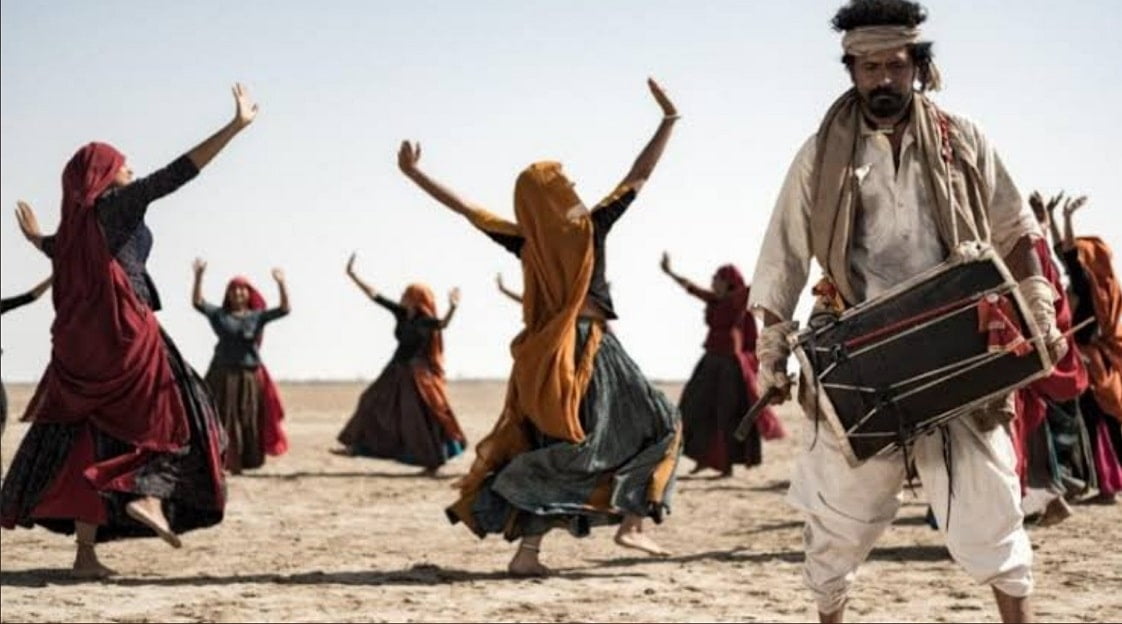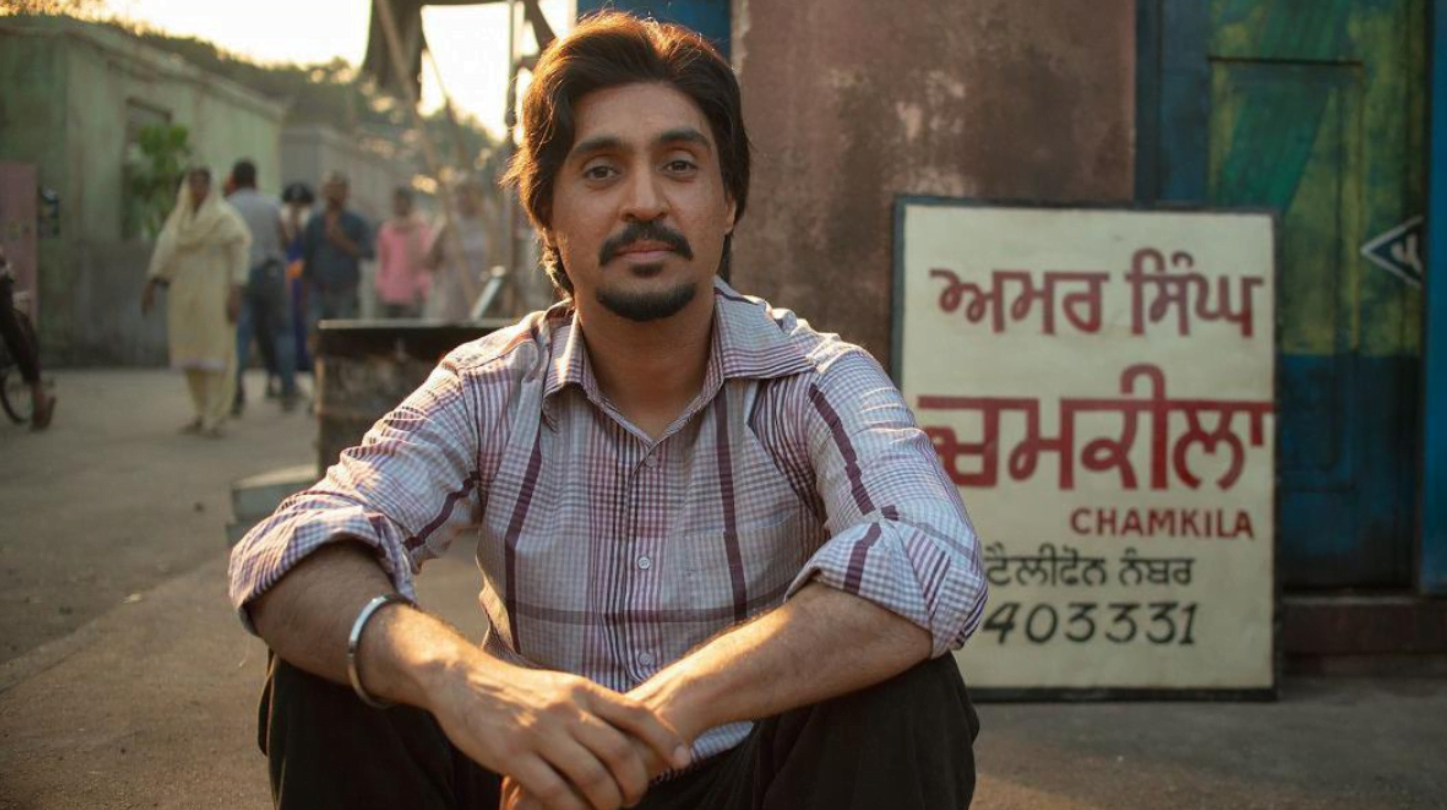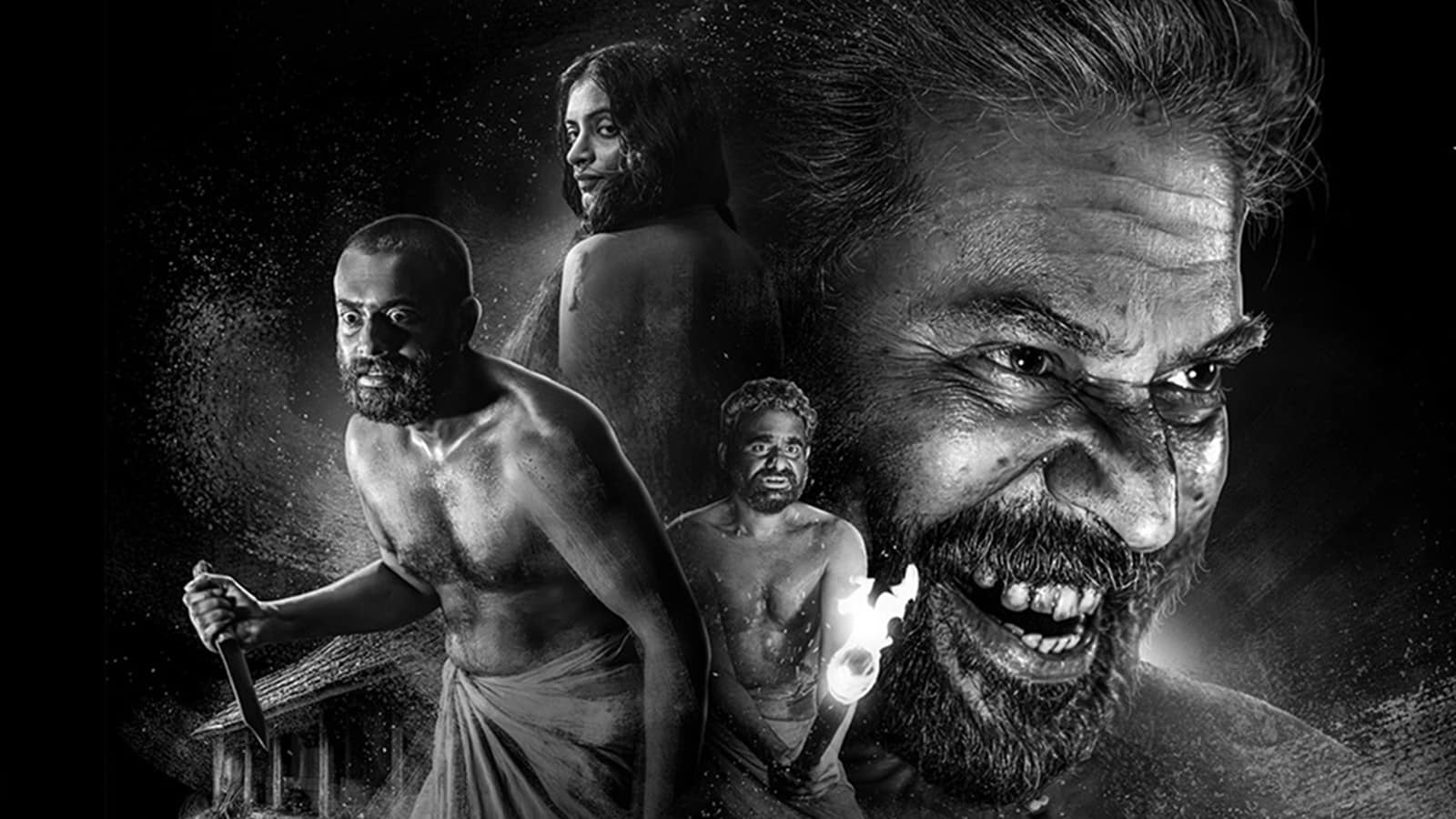Hellaro is a triumphant tale of pitting female expression against male suppression. Set in the time of emergency, i.e. the early 70s, the film revolves around the life of 13 women in a fictional village, Samarpura at a location near the Indo-Pak border ninety kilometers from the Kutch headquarter Bhuj. The men in the rural setting of the village are coarse, violent and controlling towards the women, and expect them to surrender to the patriarchal norms. They laugh only at the cost of sexist jokes.
Garba is a Gujarati folk dance form and in the setting of the village only the men are allowed to perform and women are forbidden of experiencing any such joy. The film has a scene wherein the men dance sword-brandishing garba to appease the goddess Amba for rains after two years of drought, and women, yearning, watch from the windows of their mud-huts. “Isn’t it weird that when it does not rain, men dance and we fast and starve?“, asks Manjhri, a bride newly married to a village recruit Arjan posted as a fauji on the China border.
The film has a scene wherein the men dance sword-brandishing garba to appease the goddess Amba for rains after two years of drought, and women, yearning, watch from the windows of their mud-huts.
Manjhri, is a literate entrant with schooling up to seventh standard from a town who becomes the harbinger of change in the village mindset. She raises questions on the male dominance as she goes to fetch water in the village outskirts with other women systemically stuck in a misogynistic puddle.
Also read: Bollywood’s Obsession With Disposable Female Characters
On one such trek to trudge for water, these women find a man, unconscious in the hot terrain with bandages wrapped around his legs. They give him some water and as he gains consciousness they notice a dhol (drum) next to him and Manjhiri asks him to play it for them. As he begins Manjhiri along with other women, in an outburst sway to his drum beats and perform garba. Years of longing for the joy of dancing had finally come to an end. Even though they could finally do, they couldn’t do it back in the village in front of the men, just in isolation with their dholi (drummer).
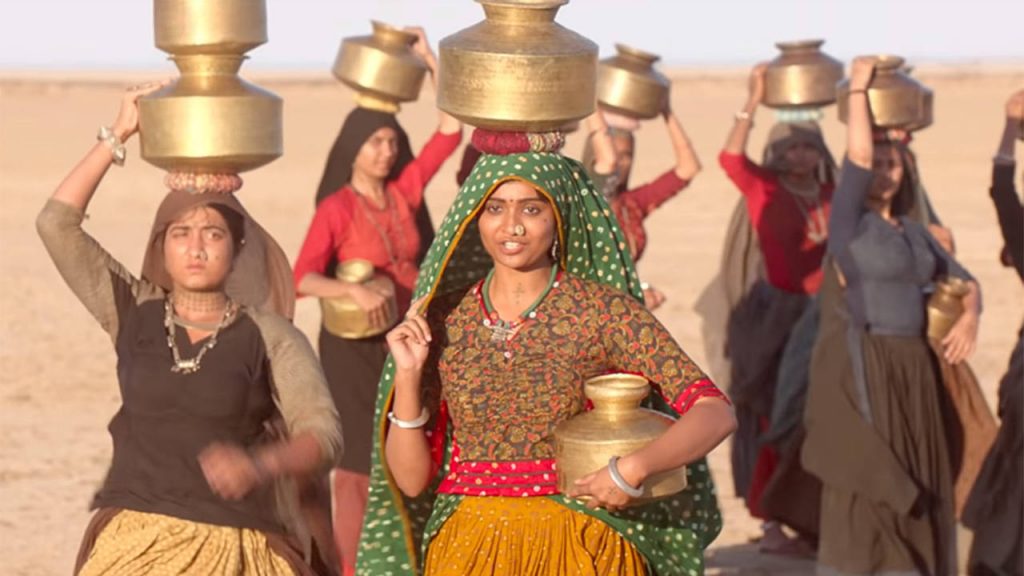
This very happening in the film was the connotation for the name of the film “hellaro“. In an interview with Kartavya Sadhna, director Abhishek Shah spoke about the meaning of the title, “Hellaro is an archaic word, seldom heard in spoken Gujarati today. It means a rising tide or wave of water. The sort of wave that rocks the world around you. Brings about a transformation. It is the kind of shock which hits you so hard within, which changes everything. Imagine an autocratic time, where expression is suppressed. A giant wave unleashes such powerful expression that it overthrows the autocracy itself. That is Hellaro for you.”
The daily elixir of garba, far away from male sight, instilled a new life in women. Manjhri says to dholi (the drummer), “We feel that we are alive only when we clap and dance to the beats of your dhol. I will exchange my whole kingdom – if I have one – for the sake of garba.” Gayatri jokingly added that she and her daughter Sita found their long lost smile in garba.
All of these 13 women in the group have a tale of woe of male torture. Hansa suffers a miscarriage of a girl child as her husband beats and kicks her. Kesar becomes a widow in her youth, carries on life with her bed-ridden father-in-law and she is barred from talking to anyone in the village, including women. Gayatri’s husband inflicted domestic violence upon her.
All of these 13 women in the group have a tale of woe of male torture. Hansa suffers a miscarriage of a girl child as her husband beats and kicks her. Kesar becomes a widow in her youth, carries on life with her bed-ridden father-in-law and she is barred from talking to anyone in the village, including women. Gayatri’s husband is physically violent towards her. Her peevish husband snaps at and shuts up Sita whenever the little girl dares to ask or laugh. As the vivacious Manjhri begins embroidery, a widow snatches the piece from her as any such work is a taboo because a young widow had run away with a man who used to buy her embroidery.
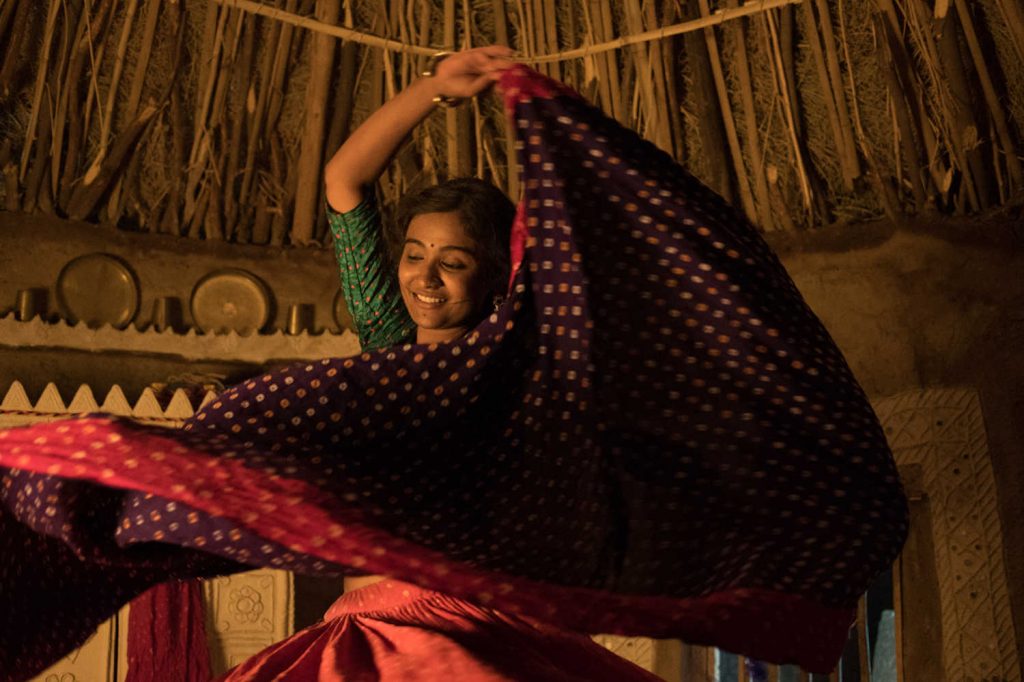
Manjhri is caught dancing garba and her husband slaps her saying, “Had I not told you whether you have grown wings or horns, remove them yourself, because if I cut them, it will pain you more.” Unafraid of any such shackles the women continued to dissent and breakthrough with dancing and living for the dancing garba.
Also read: Bandit Queen: Depicting Rape And The “Third World Heroic Woman”
The National Film Award jury also conferred the 13 actresses of the film Hellaro—Shraddha Dangar, Shachi Joshi, Denisha Ghumra, Neelam Paanchal, Tarjani Bhadla, Brinda Nayak, Tejal Panchasara, Kaushambi Bhatt, Ekta Bachwani, Kamini Panchal, Jagruti Thakore, Riddhi Yadav and Prapti Mehta—with a special Jury Award for acting as a unit, “To bring about social transformation while taking the audience through an emotional catharsis.”
Featured Image Source: Firstpost
